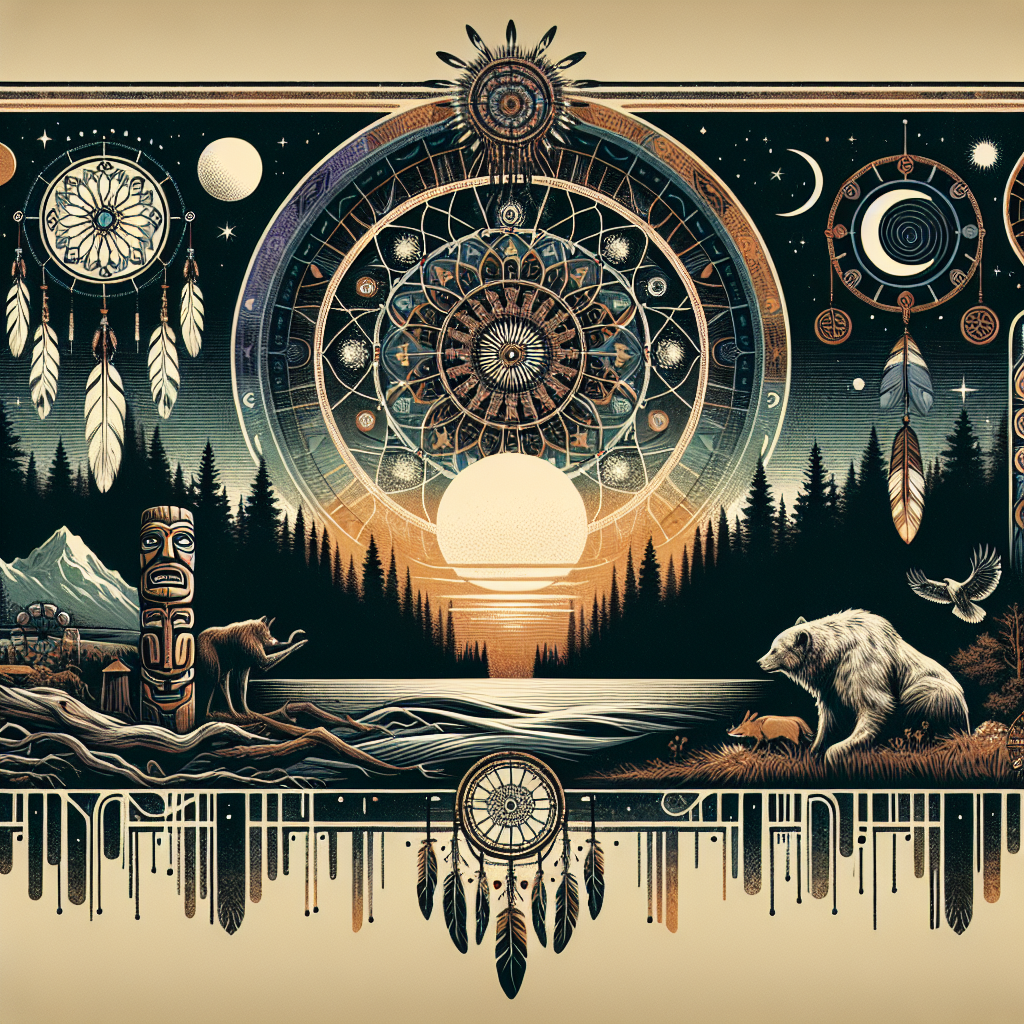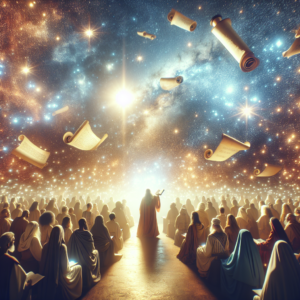Spiritual Devotional about Shamanism and Indigenous Wisdom
Shamanism and Indigenous Wisdom: A Bridge of Spiritual Enlightenment

Welcome to our spiritual community where we journey, grow and connect through deep understanding and mutual respect. Today, let’s immerse ourselves into the wisdom enclosed within ancient, rich traditions of Shamanism, Indigenous cultures, and the Bible. Let’s draw parallels and explore these spiritual dimensions, simultaneously gaining insights and promoting unity.
Understanding Shamanism and Indigenous Wisdom
Shamanism, an age-old spiritual tradition predominantly followed by Indigenous societies, opens the door to a universe where everything is interrelated. It champions the principles of harmony, respect for all life forms, and the delicate balance of our ecosystem. Rooted in love and reverence for nature, the foundation of shamanic wisdom aligns seamlessly with several biblical principles.
The Biblical Confluence
The doctrine of Shamanism expresses the belief in spirit-infused world, mirroring the biblically-commended ideology of a living, relational Universe created by God. The essence of communication with these spirits in Shamanism bears similarity to Biblical practices of prayer and prophecy, where believers actively establish a divine connection through faith.
In the book of Genesis, God handed Adam the responsibility of tending the Earth, reflecting the shamanic practice of guardianship over nature. The indigenous wisdom that each life form carries a spiritual essence resonates with the Christian belief in the Holy Spirit’s presence manifested in different ways.
Learning from Indigenous Wisdom
Indigenous wisdom is a holistic approach to life, recognizing the interconnectedness of everything. Native cultures teach reverence for the natural world, for our roots and our ancestors, embodying the biblical principle of honour for the past and hope for the future. Their beliefs echo the Apostle Paul’s declaration in Romans that God’s eternal power and divine nature can be clearly seen in the magnificence of His creation.
In The End…
While we celebrate diverse spiritual paths, we acknowledge that all paths lead us towards understanding, love, unity, and respect for all existence. As we delve into Shamanism and Indigenous wisdom, drawing parallels with Biblical teachings, let’s adopt their cherished virtues of harmony and respect. Let these ancient wisdoms broaden our perspectives, enrich our knowledge, and inspire our spiritual journeys.
May the Spirit lead you towards enlightenment, growth, unity, and love. Until next time…
Explore and dig up answers yourself with our BGodInspired Bible Tools! Be careful – each interaction is like a new treasure hunt… you can get lost for hours 🙂
Q&A about Shamanism and Indigenous Wisdom
Q: What is shamanism?
A: Shamanism is a spiritual practice that involves a practitioner, a shaman, who can reach altered states of consciousness in order to interact with the spirit world and channel these transcendental energies into this world.
Q: What are the origins of shamanism?
A: Shamanism has ancient origins, seen in many indigenous cultures around the world. It is believed to have originated in Siberia and Mongolia, but there is evidence of similar practices in the Americas, Africa, Australia and parts of Asia.
Q: How does Indigenous wisdom relate to shamanism?
A: Indigenous wisdom often relates to shamanism in that both value a deep connection and respect for the natural world, spirit realm, and the interconnectedness of all life. Shamanism is frequently a part of indigenous wisdom, serving as both a spiritual and a healing practice.
Q: What is the role of a shaman in indigenous societies?
A: The role of a shaman varies across cultures but generally, they serve as mediators between the human world and spirit world. They carry out various functions like healing, conducting ceremonies, divination, and guiding the spirits of the deceased.
Q: What practices are involved in shamanism?
A: Practices in shamanism involve entering altered states of consciousness through various means like meditation, drumming, or the use of plant medicines or psychedelics, in order to connect with the spirit world. They also engage in healing rituals, divination, and ceremonies to balance energies.
Q: How is indigenous wisdom passed on to future generations?
A: Indigenous wisdom is typically passed on through oral tradition, storytelling, experience, and direct transmission from elders or spiritual leaders including shamans. Some cultures also use rites of passage, dances, songs, art, sacred rituals, and ceremonies to transfer this wisdom.
Q: How does shamanism view illness and healing?
A: Shamanism often views illness as an imbalance in a person’s spiritual energy. It may also be seen as a loss or intrusion of the soul. Healing, therefore, involves restoring this balance, often through rituals, ceremonies, or spiritual journeys to the spirit world.
Q: Is shamanism a religion?
A: While shamanism has spiritual elements, it is not considered a religion. Rather, it is a method or practice that can exist within many different religious frameworks, among atheists, or in cultures with a complex animistic worldview where every living thing is considered to have a spirit.


